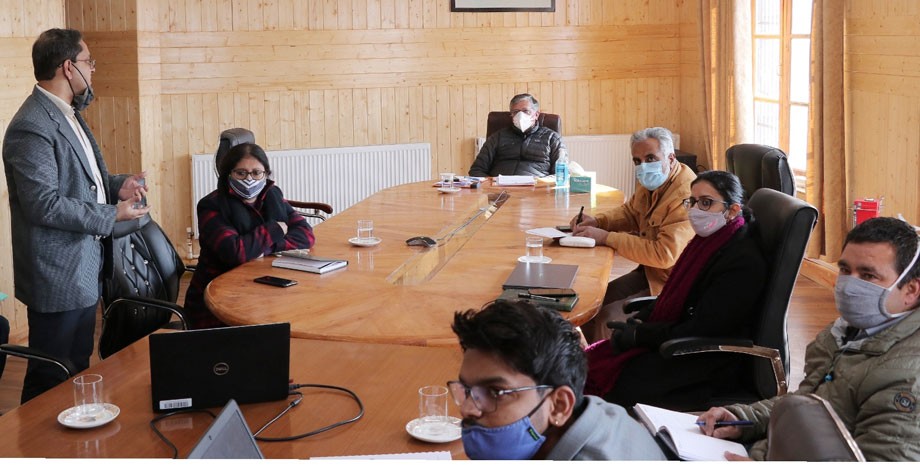Prepare implementable action plan for achieving Carbon Neutrality: Advisor Narula

Advisor Ladakh, Umang Narula convened a meeting for the preparation of action plans by individual departments for achieving a carbon-neutral status for Ladakh.
The Advisor stated that the idea of a Carbon-Neutral, Ladakh was envisioned by Prime Minister Narendra Modi and it aims at planning future developmental activities to minimize carbon emissions.
A team from The Energy Resource Institute (TERI) headed by Associate Director, Souvik Bhattacharya also participated in the meeting.
A presentation was made by TERI depicting the baseline carbon emission position in Ladakh and the projected emissions based on energy consumption patterns and growth of various sectors. They also presented a long-term transition strategy to develop a climate-resilient, carbon-neutral Ladakh based on the hierarchical principles of avoiding, reduce, replace, and then offset.
The meeting discussed the promotion of solar energy parks, increasing grid capacity, and shift from non-electricity usage to more efficient electricity-based consumption including space heating. The use of Decentralized Solar Micro Grids and Solar Roof Tops for electrifying households in remote villages was discussed. The UT Administration is targeting fulfilling all its' energy requirements for lighting, heating, and cooking, etc. needs through renewable sources of energy.
The Advisor asked the departments to prepare comprehensive plans for achieving carbon neutrality based on the broader suggested interventions presented by TERI, which will be incorporated within their Annual Action Plan.
During the discussions, it emerged that the Tourism department can promote homestay tourism which is sustainable and has lower carbon footprints and in particular construction of solar passive homestay can be incentivized.
Similarly, the Housing & Urban Development department should take steps to promote the construction of solar passive residential and commercial buildings within the urban areas.
The Transport department was asked to plan the introduction of hybrid electric vehicles on a pilot basis for public and private transport.
The Advisor exhorted upon utilizing existing water resources optimally to bring more area under cultivation which can sequester carbon emissions. He asked the Agriculture & Horticulture departments and the Deputy Commissioners to focus on drip irrigation and other efficient methods of micro-irrigation to maximize the use of existing water resources.





